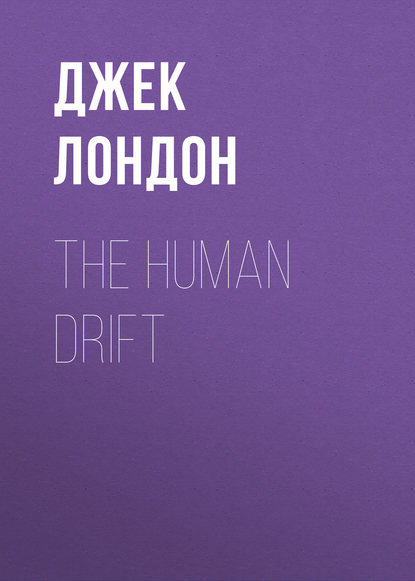По всем вопросам обращайтесь на: info@litportal.ru
(©) 2003-2024.
✖
The Human Drift
Настройки чтения
Размер шрифта
Высота строк
Поля
MAUD. Thanks. Tell me some more about her.
FITZSIMMONS. She dresses a bit loud. But you won’t mind that. And whatever you do, don’t take her to eat.
MAUD. [Hiding her chagrin.] Why not?
FITZSIMMONS. I never saw such an appetite —
MAUD. Oh!
FITZSIMMONS. It’s fair sickening. She must have a tapeworm. And she thinks she can sing.
MAUD. Yes?
FITZSIMMONS. Rotten. You can do better yourself, and that’s not saying much. She’s a nice girl, really she is, but she is the black sheep of the family. Funny, isn’t it?
MAUD. [Weak voice.] Yes, funny.
FITZSIMMONS. Her brother Jack is all right. But he can’t do anything with her. She’s a – a —
MAUD. [Grimly.] Yes. Go on.
FITZSIMMONS. A holy terror. She ought to be in a reform school.
MAUD. [Springing to her feet and slamming newspapers in his face.] Oh! Oh! Oh! You liar! She isn’t anything of the sort!
FITZSIMMONS. [Recovering from the onslaught and making believe he is angry, advancing threateningly on her.] Now I’m going to put a head on you. You young hoodlum.
MAUD. [All alarm and contrition, backing away from him.] Don’t! Please don’t! I’m sorry! I apologise. I – I beg your pardon, Bob. Only I don’t like to hear girls talked about that way, even – even if it is true. And you ought to know.
FITZSIMMONS. [Subsiding and resuming seat.] You’ve changed a lot, I must say.
MAUD. [Sitting down in leather chair.] I told you I’d reformed. Let us talk about something else. Why is it girls like prize-fighters? I should think – ahem – I mean it seems to me that girls would think prize-fighters horrid.
FITZSIMMONS. They are men.
MAUD. But there is so much crookedness in the game. One hears about it all the time.
FITZSIMMONS. There are crooked men in every business and profession. The best fighters are not crooked.
MAUD. I – er – I thought they all faked fights when there was enough in it.
FITZSIMMONS. Not the best ones.
MAUD. Did you – er – ever fake a fight?
FITZSIMMONS. [Looking at her sharply, then speaking solemnly.] Yes. Once.
MAUD. [Shocked, speaking sadly.] And I always heard of you and thought of you as the one clean champion who never faked.
FITZSIMMONS. [Gently and seriously.] Let me tell you about it. It was down in Australia. I had just begun to fight my way up. It was with old Bill Hobart out at Rushcutters Bay. I threw the fight to him.
MAUD. [Repelled, disgusted.] Oh! I could not have believed it of you.
FITZSIMMONS. Let me tell you about it. Bill was an old fighter. Not an old man, you know, but he’d been in the fighting game a long time. He was about thirty-eight and a gamer man never entered the ring. But he was in hard luck. Younger fighters were coming up, and he was being crowded out. At that time it wasn’t often he got a fight and the purses were small. Besides it was a drought year in Australia. You don’t know what that means. It means that the rangers are starved. It means that the sheep are starved and die by the millions. It means that there is no money and no work, and that the men and women and kiddies starve.
Bill Hobart had a missus and three kids and at the time of his fight with me they were all starving. They did not have enough to eat. Do you understand? They did not have enough to eat. And Bill did not have enough to eat. He trained on an empty stomach, which is no way to train you’ll admit. During that drought year there was little enough money in the ring, but he had failed to get any fights. He had worked at long-shoring, ditch-digging, coal-shovelling – anything, to keep the life in the missus and the kiddies. The trouble was the jobs didn’t hold out. And there he was, matched to fight with me, behind in his rent, a tough old chopping-block, but weak from lack of food. If he did not win the fight, the landlord was going to put them into the street.
MAUD. But why would you want to fight with him in such weak condition?
FITZSIMMONS. I did not know. I did not learn till at the ringside just before the fight. It was in the dressing rooms, waiting our turn to go on. Bill came out of his room, ready for the ring. “Bill,” I said – in fun, you know. “Bill, I’ve got to do you to-night.” He said nothing, but he looked at me with the saddest and most pitiful face I have ever seen. He went back into his dressing room and sat down.
“Poor Bill!” one of my seconds said. “He’s been fair starving these last weeks. And I’ve got it straight, the landlord chucks him out if he loses to-night.”
Then the call came and we went into the ring. Bill was desperate. He fought like a tiger, a madman. He was fair crazy. He was fighting for more than I was fighting for. I was a rising fighter, and I was fighting for the money and the recognition. But Bill was fighting for life – for the life of his loved ones.
Well, condition told. The strength went out of him, and I was fresh as a daisy. “What’s the matter, Bill?” I said to him in a clinch. “You’re weak.” “I ain’t had a bit to eat this day,” he answered. That was all.
By the seventh round he was about all in, hanging on and panting and sobbing for breath in the clinches, and I knew I could put him out any time. I drew back my right for the short-arm jab that would do the business. He knew it was coming, and he was powerless to prevent it.
“For the love of God, Bob,” he said; and – [Pause.]
MAUD. Yes? Yes?
FITZSIMMONS. I held back the blow. We were in a clinch.
“For the love of God, Bob,” he said again, “the misses and the kiddies!”
And right there I saw and knew it all. I saw the hungry children asleep, and the missus sitting up and waiting for Bill to come home, waiting to know whether they were to have food to eat or be thrown out in the street.
“Bill,” I said, in the next clinch, so low only he could hear. “Bill, remember the La Blanche swing. Give it to me, hard.”
We broke away, and he was tottering and groggy. He staggered away and started to whirl the swing. I saw it coming. I made believe I didn’t and started after him in a rush. Biff! It caught me on the jaw, and I went down. I was young and strong. I could eat punishment. I could have got up the first second. But I lay there and let them count me out. And making believe I was still dazed, I let them carry me to my corner and work to bring me to. [Pause.]
Well, I faked that fight.
MAUD. [Springing to him and shaking his hand.] Thank God! Oh! You are a man! A – a – a hero!
FITZSIMMONS. [Dryly, feeling in his pocket.] Let’s have a smoke. [He fails to find cigarette case.]
MAUD. I can’t tell you how glad I am you told me that.
FITZSIMMONS. [Gruffly.] Forget it. [He looks on table, and fails to find cigarette case. Looks at her suspiciously, then crosses to desk at right and reaches for telephone.]
MAUD. [Curiously.] What are you going to do?
FITZSIMMONS. Call the police.
MAUD. What for?

















